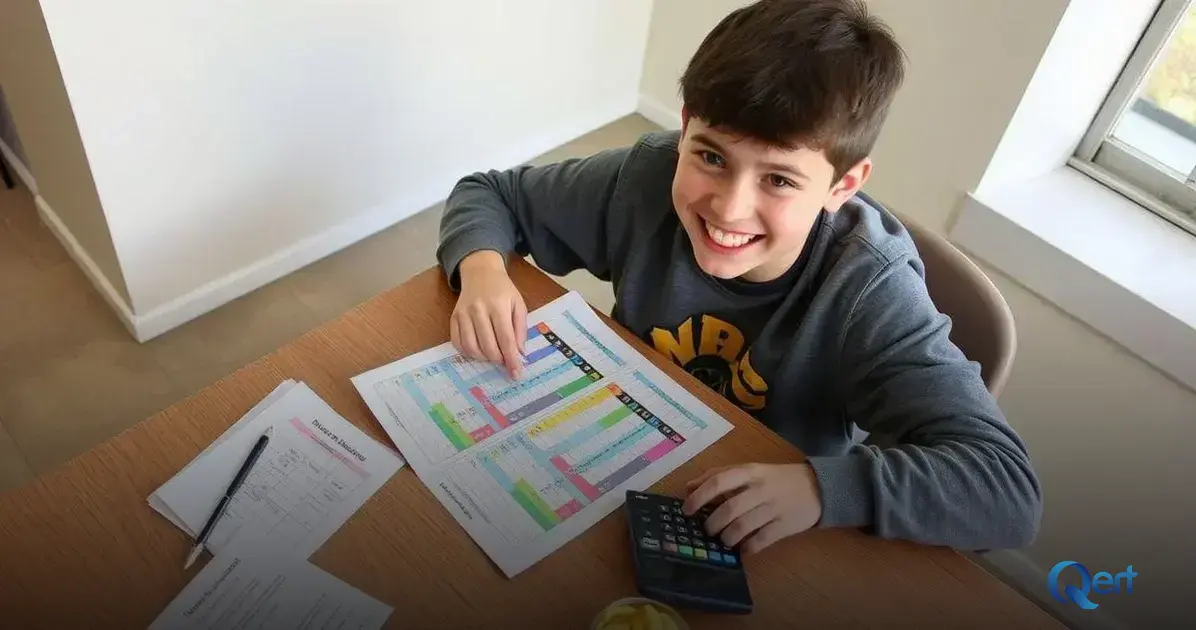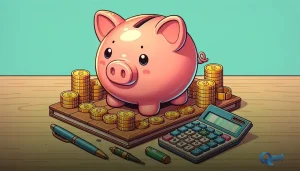ADVERTISEMENT
Money lessons for teens are vital for establishing a foundation for financial literacy.
Learning how to manage money, save, and invest wisely can lead to a lifetime of financial success.
In this article, we will delve into essential lessons about budgeting, saving, and investing that every teen should understand.
Understanding the Basics of Money Management
Understanding the basics of money management is essential for teens. It starts with knowing how to keep track of what you spend and what you earn. Keeping a simple record can help you see where your money goes. This way, you can make sure you’re not spending more than you have.
Setting a budget is an important part of money management. A budget helps you plan how to use your money wisely. You can decide how much to save, how much to spend on fun, and how much to set aside for future needs. Sticking to a budget can be challenging, but it is a great way to take control of your finances.
Another key aspect of money management is saving for emergencies or future goals. This can be as simple as putting aside a little money each week. Having savings gives you a sense of security and helps you be prepared for unexpected costs. Remember, starting to save early helps build good money habits for life.
Setting Financial Goals as a Teen
Setting financial goals as a teen is a smart way to manage your money and make your dreams come true. Start by thinking about what you want to achieve in the short term, like saving for a new phone or a special outfit. Then, consider your long-term goals, such as saving for college or a car. By having clear goals, you know what you’re working towards and can plan how to reach them.
Once you have your goals in mind, it’s important to make them specific and realistic. For example, instead of saying, “I want to save money,” set a goal like, “I want to save $50 every month for the next six months.” This way, you can track your progress and stay motivated. Writing down your goals can help remind you of your commitment.
Lastly, review your goals regularly to see how you are doing. If you reach a goal, celebrate that success! If you find it hard to stick to your plan, think about what changes you can make. Adjusting your goals is okay; it shows you are learning and growing as you manage your money.
Budgeting: Keeping Track of Your Money

Budgeting is an important skill for teens to learn when it comes to keeping track of your money. It involves knowing how much money you earn and how much you spend. By creating a budget, you can see where your money goes each month and make better choices about saving and spending. It helps you avoid surprises when it comes time to pay for things you need or want.
To start budgeting, first write down all your income, like your allowance or any money you earn from a part-time job. Next, list your expenses, including things like snacks, video games, or outings with friends. By comparing your total income with your total expenses, you can see if you are spending too much or if you have money left to save.
Staying on top of your budget means checking it regularly. You might want to use an app or a simple notebook to record your transactions. This will help you see if you are sticking to your plan or if you need to adjust your spending. With practice, budgeting can become second nature and help you make smart financial decisions.
Saving Strategies for Young Adults
Saving strategies for young adults are essential for building a secure financial future. One simple approach is to set up a savings account and automatically transfer a small amount of money each month. This way, you won’t even notice the money is gone because it goes directly into savings. Over time, this can add up and help you reach your financial goals.
Another effective strategy is to start a budget that includes savings as a priority. When you receive money, like your allowance or paycheck, divide it into categories: spending, saving, and sharing. By making saving a regular part of how you manage your money, you’re less likely to spend it all, and you can build your savings faster.
Lastly, finding ways to cut back on unnecessary expenses can free up more money to save. For instance, consider making lunch at home instead of buying food out or limit impulse buys when shopping. By being mindful of your spending habits, you can save more and prepare for future needs or dreams.
Investing Basics for Teens
Investing basics for teens are important to learn for building wealth over time. Investing means using your money to buy things that can grow in value, like stocks or mutual funds. These investments can help you make more money compared to simply keeping it in a bank account. By starting early, you give your money more time to grow.
One easy way to begin investing is by learning about stocks. A stock represents a small piece of a company. When the company does well, the value of your stock can go up, and you can earn money when you sell it. Always remember that investing comes with risks, so it’s wise to do some research and understand what you’re buying before diving in.
Another option for teens is to consider a savings account with a higher interest rate or a custodial account. These options can yield better returns than regular savings accounts. It’s also smart to ask questions and seek advice from trusted adults, like parents or teachers, to learn more about investing and make informed choices.
Building Good Money Habits Early
Building good money habits early is key for teens who want to manage their finances well. Developing consistent routines like tracking expenses, saving a portion of any income, and avoiding impulsive purchases helps create a strong financial foundation. These habits often become automatic and can lead to smarter money choices throughout life.
One important habit is learning to differentiate between wants and needs. Teens who understand this can prioritize spending on essentials while still enjoying occasional treats without overspending. Another good practice is setting aside a small emergency fund, which can cover unexpected costs and reduce stress.
By focusing on these money lessons for teens and practicing good habits daily, young people are better prepared for future financial independence and success. The earlier these habits start, the easier it becomes to handle money confidently as an adult.







